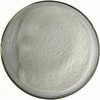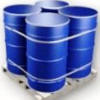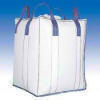| Anmol Chemicals is the pioneer manufacturers of Calcium Compounds, Pharmaceutical Excipients Food & Flavor chemicals in India. We offer Halal and Kosher Calcium Compounds made in an ISO9001, ISO22000 (FSSC22000) cGMP and GLP certified facility. Our group has several manufacturing facilities spread across the world, supported by toll manufacturers and representatives in UAE, Europe, Africa, USA, China and has several associated manufacturing facilities spread across India. All the Information on Physics, Chemistry, Applications, Uses and Technology on Manufacture of Calcium Sulfate is in these pages. |
| The units have one or more of the certifications like FDA GMP, ISO 9001, ISO 22000, HACCP, REACH, Kosher & Halal |
Calcium Sulfate Dihydrate, Hemihydrate, Anhydrous USP BP Ph Eur Analytical Reagent FCC Food Grade Manufacturers
Synonyms: Calcium Sulfate; Calcium Sulphate
Calcium Sulfate Dihydrate CAS No.: 10101-41-4, Molecular Weight: 172.2, Chemical Formula: CaSO4-2H2O, EINECS No. 231-900-3
Calcium Sulfate Hemihydrate CAS No.: 10034-76-1, Molecular Weight: 145.15, Chemical Formula: CaSO4-0.5H2O, EINECS No. 231-900-3
Calcium Sulfate Anhydrous CAS No.: 7778-18-9, Molecular Weight: 136.14, Chemical Formula: CaSO4, EINECS No. 231-900-3
SDS of Calcium Sulfate Dihydrate Manufacturers
SDS of Calcium Sulfate Hemihydrate, Anhydrous Manufacturers
Calcium Sulfate
Calcium Sulphate Dihydrate, Hemihydrate, Anhydrous USP BP Ph Eur Analytical Reagent FCC Food Grade Suppliers

Calcium Sulfate USP
CaSO4 136.14
Sulfuric acid, calcium salt (1:1)
Calcium sulfate (1:1) 136.14
Dihydrate 172.17
Calcium Sulfate is anhydrous or contains two molecules of water of hydration. It contains not less than 98.0 percent and not more than 101.0 percent of CaSO4 i.e. Calcium Sulfate or Calcium Sulphate, calculated on the dried basis.
Labeling: Label it to indicate whether it is Calcium Sulfate anhydrous or the Calcium Sulphate dihydrate.
Identification: Dissolve about 200 mg by warming in a mixture of 4 mL of 3 N hydrochloric acid and 16 mL of water. This solution responds to the tests for Calcium and for Sulfate.
Loss on drying: Dry it at a temperature not lower than 250 to constant weight: the anhydrous form loses not more than 1.5% of its weight, and the dihydrate loses between 19.0% and 23.0% of its weight.
Iron: Dissolve 100 mg in 8 mL of 3 N hydrochloric acid, and dilute with water to 47 mL: the limit is 0.01%.
Heavy metals: Mix 2.0 g with 20 mL of water, add 25 mL of 3 N hydrochloric acid, and heat to boiling to dissolve the test specimen. Cool, and add ammonium hydroxide to a pH of 7. Filter, evaporate to a volume of about 25 mL, and re-filter, if necessary, to obtain a clear solution: the limit is 0.001%.
Calcium Sulphate Dihydrate BP
CaSO4,2H2O ... 172.2
Action and use: Excipient.
DEFINITION
Content: 98.0 per cent to 102.0 per cent of CaSO4,2H2O i.e. Calcium Sulphate Dihydrate or Calcium Sulfate Dihydrate.
CHARACTERS
Appearance:
White or almost white fine powder.
Solubility:
Very slightly soluble in water, practically insoluble in ethanol (96 per cent).
IDENTIFICATION
Loss on ignition.
Solution S gives reaction of sulphates.
Solution S gives reaction of calcium.
TESTS
Solution S:
Dissolve 1.0 g in 50 ml of a 10 per cent V/V solution of hydrochloric acid R by heating at 50°C for 5 min. Allow to cool.
Acidity or alkalinity:
Shake 1.5 g with 15 ml of carbon dioxide-free water for 5 min. Allow to stand for 5 min and filter. To 10 ml of the filtrate add 0.1 ml of phenolphthalein solution and 0.25 ml of 0.01 M sodium hydroxide. The solution is red. Add 0.30 ml of 0.01 M hydrochloric acid. The solution is colourless. Add 0.2 ml of methyl red solution. The solution is reddish-orange.
Chlorides:
Maximum 300 ppm.
Shake 0.5 g with 15 ml of water R for 5 min. Allow to stand for 15 min and filter. Dilute 5 ml of the filtrate to 15 ml with water.
Arsenic:
Maximum 10 ppm, determined on 5 ml of solution S.
Iron: Maximum 100 ppm.
To 0.25 g add a mixture of 5 ml of hydrochloric acid R and 20 ml of water R. Heat to boiling, cool and filter.
Heavy metals:
Maximum 20 ppm.
To 2.5 g add a mixture of 2 ml of hydrochloric acid R and 15 ml of water R. Heat to boiling. Cool and then add 0.5 ml of phenolphthalein solution R. Cautiously add concentrated ammonia until the colour changes to pink. Add 0.5 ml of glacial acetic acid R and dilute to 25 ml with water R. Filter. 12 ml of the filtrate complies with test A. Prepare the reference solution using lead standard solution (2 ppm Pb.
Loss on ignition:
18.0 per cent to 22.0 per cent, determined on 1.000 g by ignition to constant mass at 800 ± 50C.
Calcium Sulfate FCC Food Grade as per US Food Chemical Codex FCC
CaSO4 Formula wt, anhydrous 136.14
CaSO4·2H2O Formula wt, dihydrate 172.18
INS: 516 CAS: anhydrous [7778-18-9]
CAS: dihydrate [10101-41-4]
DESCRIPTION
Calcium Sulfate occurs as a fine, white to slightly yellow-white powder. It is anhydrous or contains two molecules of water of hydration.
Function Nutrient; yeast food; dough conditioner; firming agent; sequestrant.
REQUIREMENTS
Identification: Dissolve about 200 mg of sample by warming it with a mixture of 4 mL of 2.7 N hydrochloric acid and 16 mL of water. A white precipitate forms when 5 mL of ammonium oxalate TS is added to 10 mL of the solution. Upon the addition of barium chloride TS to the remaining 10 mL, a white precipitate forms that is insoluble in hydrochloric and nitric acids.
Assay: Not less than 98.0% of CaSO4 i.e. Calcium Sulphate, calculated on the dried basis.
Fluoride: Not more than 0.003%.
Lead: Not more than 2 mg/kg.
Loss on Drying Anhydrous: Not more than 1.5%; Dihydrate: Between 19.0% and 23.0%.
Selenium: Not more than 0.003%.
TESTS
Assay Dissolve 250 mg of sample, accurately weighed, in 100 mL of water and 4 mL of 2.7 N hydrochloric acid, boil to effect solution, and cool. While stirring, preferably with a magnetic stirrer, add about 30 mL of 0.05 M disodium EDTA from a 50-mL burette, then add 25 mL of 1 N sodium hydroxide and 300 mg of hydroxy naphthol blue indicator, and continue the titration to a blue endpoint. Each milliliter of 0.05 M disodium EDTA is equivalent to 6.807 mg of CaSO4.
Calcium Sulfate Dihydrate Analytical Reagent
Also Called Calcium Sulphate Dihydrate
CaSO4 . 2H2O
Formula Wt 172.17
CAS Number 10101-41-4
REQUIREMENTS
Assay: 98.0-102.0% CaSO4 . 2H2O
MAXIMUM ALLOWABLE
Insoluble in dilute hydrochloric acid: 0.02%
Chloride (Cl): 0.005%
Nitrate (NO3): Passes test
Carbonate (CO3): Passes test
Heavy metals (as Pb): 0.002%
Iron (Fe): 0.001%
Magnesium (Mg): 0.02%
Potassium (K): 0.005%
Sodium (Na): 0.02%
Strontium (Sr): 0.05%
Precipitated Calcium Sulfate Dihydrate
Color: Snow White
Odor: Neutral
pH: 7 approximate
Iron as Fe: <20ppm
Chloride as Cl: <150ppm
Loss on drying (LOD): 20.15%
Assay: >99.9%
Heavy Metals as Pb: <2ppm
Specific Gravity: 0.6 gms/cc
SIEVE ANALYSIS
Through 50 mesh: 100 %
Through 100 mesh: 100%
Through 200 mesh: 100 %
Through 300 mesh: 98 %.
Calcium Sulfate USP BP Ph Eur Analytical Reagent FCC Food Grade Manufacturers :
Anmol Chemicals
S-8, SARIFA MANSION, 2ND FLANK ROAD, CHINCHBUNDER, MUMBAI 400009, INDIA
TEL: (OFFICE) 91-22-23770100, 23726950, 23774610, 23723564. FAX: 91-22-23728264
e-mail: anmolc@mtnl.net.in

Exports to USA, Canada, UAE, Dubai, South Africa, Tanzania, Kenya, Nigeria, Egypt, Uganda, Turkey, Mexico, Brazil, Chile, Argentina, Europe Netherlands, Italy, Spain, Germany, Portugal, France, Malaysia, Indonesia, Thailand, Vietnam, Ukraine, Korea, Japan, etc.
Copyright and Usual Disclaimer is Applicable. 13 January, 2022



